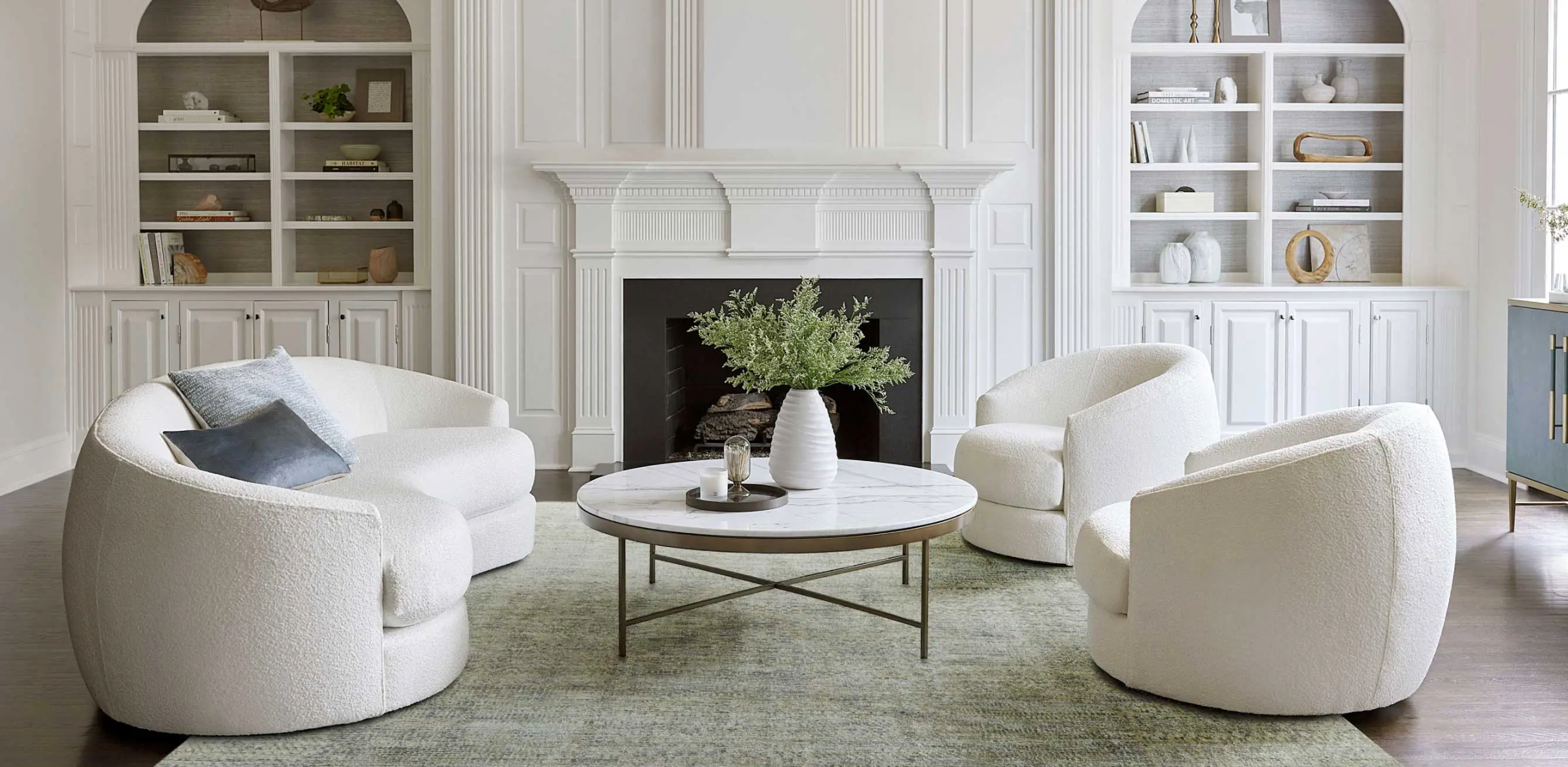After acquiring the Mitchell Gold + Bob Williams brand last year, home furnishings company Surya has made good on its promise to relaunch it, debuting a to-the-trade collection made up of 50 of the company’s upholstered furniture pieces ahead of a more holistic relaunch this fall.
“We have a lot of customers who’ve been waiting on the sidelines for these products to be back on the market, so instead of waiting for a full launch, we decided to get the sales team rolling and bring back 50 pieces that we know designers love,” says Satya Tiwari, the president of Surya Inc. “It’s difficult to go from zero to 100, so this is a way that we can restart our manufacturing and continue to ramp up to a larger product launch in the fall.”
That the brand would have a second life wasn’t always a given. After abruptly ceasing operations and laying off more than 500 employees last August, Mitchell Gold + Bob Williams filed for bankruptcy. The acquisition by Surya came as the beleaguered Taylorsville, North Carolina–based brand had already entered liquidation when a Delaware judge converted the company’s bankruptcy filing from Chapter 11 to Chapter 7. As part of the deal, Surya (which, in addition to its eponymous line, owns home decor wholesaler Global Views and outdoor furniture maker RST Brands) acquired the brand’s intellectual property, some of its inventory, and all of its manufacturing equipment. Moving forward, production and distribution will resume at MG+BW’s original facilities in North Carolina, and many former factory employees will be rehired (Tiwari says nearly 40 have been hired back so far, and he hopes that number will grow with production of the revived line).
“Our goal is to get as many as 300 people back to work. Now, that’s not going to happen overnight, but we’ve seen an amazing response from former employees—even people who are working elsewhere—who want to come back and help rebuild this brand,” says Tiwari.
At the helm of MG+BW operations is industry veteran Darryl Webster, who joined the company as chief operating officer earlier this year. Webster previously held leadership roles at Henredon, Stone & Leigh, and Williams-Sonoma Inc. “Satya and his management team are doing a brilliant job of hiring good people,” says brand co-founder Mitchell Gold, who has stayed on in an advisory role. “They brought Darryl on, and he didn’t say, ‘Let’s pick up where we left off.’ He’s reorganized the factory into a really modern, efficient factory. I’ve known Darryl for 20 years, often as a competitor, and I’m so happy to have him on my team now and not on the other side of the table. It’s put us on a great track.”
While the initial offering sees some of MG+BW’s bestsellers back on the market, Gold and Tiwari are hoping to find someone to take on a design leadership role at the brand to shape the aesthetics of future collections. “We need to find the next Bob Williams,” says Gold, speaking of his co-founder, who cultivated the brand’s design identity.
One of the larger shifts of the revamped MG+BW will be a pivot to a made-to-order, trade-only model, a major change for a brand that once had as many as 25 retail storefronts. While Tiwari says that wholesaling to smaller furniture showrooms isn’t out of the question, much of the focus will be on designers. “I feel that the design community can do the best job here, taking this brand to clients and representing made-in-America, high-quality craftsmanship,” he explains. To that end, Tiwari plans to meet designers where they already source. A Mitchell Gold + Bob Williams showroom is set to open at the New York Design Center in September, and there are plans for a space in the Dallas Market Center by the end of the year, as well as a temporary showroom at High Point Market in October.
Because of the move to a wholesale model, Tiwari says designers can expect more competitive trade pricing going forward. “We aren’t doing anything to alter the quality, but we don’t have the expense of the substantial retail presence anymore, which allows us to offer a more attractive price to designers,” he explains.
Though the turmoil occurred before Surya’s involvement, Tiwari acknowledges that there are a lot of designers out there who were left in the lurch when MG+BW’s previous incarnation collapsed. At the time, Gold told BOH that roughly 4,000 customers had open orders. Tiwari encourages those customers to reach out. “We can’t relaunch this brand by closing our eyes to what happened before we got here,” he says. “[For] any of those designers that were impacted, or their customer impacted, we will have a one-on-one conversation, and we’ll try to do whatever we can to make it right. Some of those people who were impacted, they’re customers of our other brands as well, and we want to be a good partner to them in the long term.”





























